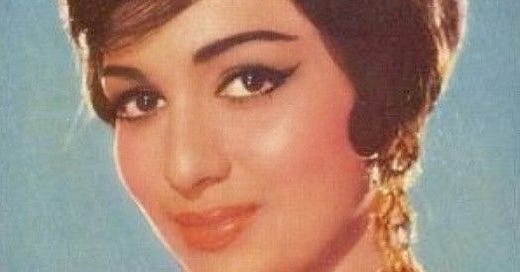It can be argued that the foremost function of poetry is to express love in the most accurate way possible. It can also be to express a loving feeling, or a magical evening that makes you fall in love. Golden Era Bollywood music from India is pure poetry and I sometimes wonder how unfortunate it is that those who do not speak the language can never access the full sweetness and loveliness of it. Because I have the blessing of having two mother tongues, I will share a little window into the beauty of this poetry here. Translations do not capture the original entirely, but they can capture a glimmer of it; one colour from a prismatic beauty.
The song I have translated before is called “Ye Shaam Mastaani”, a hindi song by Anand Bakshi and Kishore Kumar in 1970. This is my mom’s favourite song, and I wish to share some of its magical beauty with the world.
ये शाम मस्तानी
मदहोश किये जाए
मुझे डोर कोई खींचे
तेरी और लिए जाए
This evening is divine
It is intoxicating
A string is pulling me
Pulling me toward you
The word “mastaani” in the first line, मस्तानी, means not simply divine, it also means something that makes you fall in love, as if by magic.
ये शाम मस्तानी
मदहोश किये जाए
मुझे डोर कोई खींचे
तेरी और लिए जाए
The same lyrics are often repeated twice in a refrain. This is not particular to these songs, but I always thought this was such a touching tradition. If you missed some of the poetry the first time, you could really let it sink in the second time and maybe even sing along.
दूर रहती है तू
मेरे पास आती नहीं
होठों पे तेरे
कभी प्यास आती नहीं
ऐसा लगे जैसे के तू
हँस के ज़हर कोई पिए जाए
You stay far away, never coming close
No thirst touches your lips
As you laugh, you look like you’re drinking poison
Anyone who is familiar with the Petrarchan tradition will find similarities in the structure of the these songs. The lover is always tragically at a distance from his beloved and spends the song extolling the virtues of her mysterious, unattainable beauty.
ये शाम मस्तानी
मदहोश किये जाए
मुझे डोर कोई खींचे
तेरी और लिए जाए
(refrain)
बात जब मैं करू
मुझे रोक देती है क्यों
तेरी मीठी नज़र
मुझे टोक देती है क्यों
तेरी हया, तेरी शर्म
तेरी कसम मेरे होंठ सिये जाए
When I speak sweetly to you, why do you stop me?
Your sweet gaze, why does it push me away and pull me close?
Your shyness, your delicacy, it leaves me tongue-tied
The word हया comes from the arabic حياء, and sounds like “haya”. It is such a beautiful word. It means modesty, but it connotes beautiful bashfulness. It is an endearing quality and in this poem, has driven the lover insane.
ये शाम मस्तानी
मदहोश किये जाए
मुझे डोर कोई खींचे
तेरी और लिए जाए
(refrain)
एक रूठी हुई
तकदीर जैसे कोई खामोश ऐसे है तू
तस्वीर जैसे कोई
तेरी नज़र बनके ज़ुबां
लेकिन तेरे पैगाम दिए जाए
This is like a sulking destiny,
If you are silent like this, you are like a picture
In these lines, the words destiny and picture rhyme in the most lovely way, “takdeer” and “tasveer”. Otherwise, the two lines are almost identical in syntax but of course that cannot be translated!
But your gaze becomes your voice,
and it sends me your messages
The word for message is पैगाम, “paigaam” means not merely message, but can also mean a proposal for marriage. The push and pull in this poem between the lover and beloved is like a dance, which is true romance. The girl, without saying a single word, communicates everything through her eyes. This is the power of eyes which has been lost in the tyranny of materialistic “direct communication”.
“The tongue can conceal the truth, but the eyes never! You're asked an unexpected question, you don't even flinch, it takes just a second to get yourself under control, you know just what you have to say to hide the truth, and you speak very convincingly, and nothing in your face twitches to give you away. But the truth, alas, has been disturbed by the question, and it rises up from the depths of your soul to flicker in your eyes and all is lost.” Mikhail Bulgakov, The Master and Margarita
ये शाम मस्तानी
मदहोश किये जाए
मुझे डोर कोई खींचे
तेरी और लिए जाए
(refrain)
ये शाम मस्तानी
मदहोश किये जाए
मुझे डोर कोई खींचे
तेरी और लिए जाए
(refrain)
Thank you for reading, I hope to translate more songs and poetry here in the future!




The push and pull in this poem between the lover and beloved is like a dance, which is true romance."
Indeed. Thank you. I enjoyed reading that.
"But your gaze becomes your voice,
and it sends me your messages"
Wow!